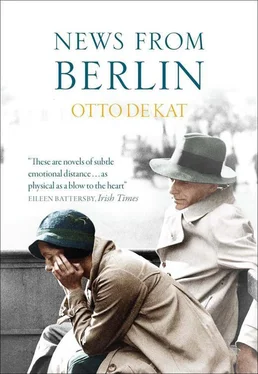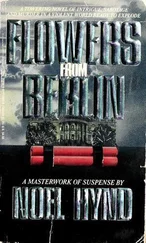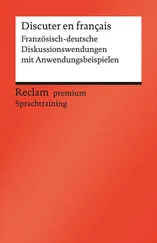The German armies were massed along a line stretching from the White Sea to the Black Sea, and their armoured divisions had attacked Russia. Bombs rained down upon the towns and villages, harvests were laid waste. The Nazis were after Russia’s oil.
Churchill’s words hammered in her head. He predicted that after Russia it would be the turn of China and India, where the lives and happiness of a thousand million human beings were now under threat. And then Kate heard him say: “I gave him warnings, I gave clear and precise warnings to Stalin of what was coming.” Kate glanced at Matteous, whose face remained impassive throughout.
I gave him warnings. So Oscar had gone to the English after all. He had listened to her – thank God for that. She smiled faintly and fell asleep again.
She had fallen violently ill from one day to the next, almost as if this was her last chance to make him stay just a little longer. An alibi for Matteous to put his plans on hold until she recovered. And of course he would do that for her, he would stay until further notice. Notice from the heartlands of Africa, from a nameless rubber plantation. A call from nobody in particular, but one that was heard and understood by Matteous.
The folded note he had given her bore his plan, set out in hieroglyphics. The words had come out in an instinctive, erratic scrawl, English and French sounds buried in a script resembling barbed wire, which Kate had difficulty reading. It must have taken him days to write. His farewell letter. The sadness welling up in her became conflated with her soaring temperature. She had already been shivering, her hand already shaking, when he had slipped her the note.
He had said that he would take care of her until she was well again. Then he would leave.
*
The summer began splendidly on Sunday, 22 June. Emma went into the garden, in answer to her private rollcall. It was eight o’clock, not a sound, only birdsong. Carl was asleep. He had not come home until dawn, having worked all night at the ministry. Emma had listened quietly when he told her of the attack, a sabre thrust deep in the flank of Russia. 3.8 million men had crossed the border, 150 divisions, Germans, Romanians and Finns, 2,000 aircraft, 600,000 motor vehicles, over 600,000 horses, 7,100 artillery guns, 3,350 tanks, over a distance of 2,900 kilometres, and all this at 03.15 hours sharp. He had read it out to her from a slip of paper.
“The gangsters.”
She stood in her garden, thinking of nothing in particular. There were no bombs exploding around her, no shots being fired. No tanks, no artillery. No grenades being tossed. Where was everybody? Just then the church bells began to ring, calling the village to worship as they did every Sunday, rain or shine, war or no war. Emma waited for the noise of a car speeding up the road. Better to be prepared.
But silence prevailed, and the sun shone as never before.
*
Oscar looked at his watch, as he had done throughout the night, hour after hour, until it was light enough for him to go outside. Not a soul about. Ensingerstrasse was a channel of emptiness, with more emptiness around the corner. At home he had heard the long-dreaded and long-avoided news on the German radio from Goebbels, speaking on behalf of the Idiot: “German people! National Socialists! Weighed down with heavy cares, condemned to months-long silence, the hour has now come when at last I can speak frankly.”
He had sat staring at the radio, and then tuned in to the B.B.C., where it was claimed that repeated warnings had been given to Stalin and the Russians. He did not believe it. Of course they hadn’t given out warnings, it was the last thing they would do. What better than to have Germany fighting on two fronts? It was to Britain’s advantage that Russia was now involved, and he had no doubt that Churchill was rejoicing. Would he come on the radio, Oscar wondered, and would Morton be with him?
He had not spoken again with Lara, but she was imprinted on his every movement. Returning from Fribourg he had even stood for a while across the street from the home of his Swedish colleague Henderson, thinking: if I ring the doorbell now I can give a last-minute warning, and who knows, throw a tiny spanner in the works of the Wehrmacht. He had not acted upon the thought.
Oscar wandered aimlessly on, away from the radio broadcast. The first early hikers, sturdily shod and bearing rucksacks, crossed his path.
About the Author and the Translator
OTTO DE KAT is the pen name of Dutch publisher, poet, novelist and critic Jan Geurt Gaarlandt. His highly acclaimed novels have been widely published in Europe, and Man on the Move was the winner of the Netherlands’ Halewijn Literature Prize.
INA RILKE is the prize-winning translator of books by Cees Nooteboom, W. F. Hermans, Erwin Mortier, Louis Couperus, Hella Haasse and Adriaan Van Dis.
Also by Otto de Kat in English translation
A Figure in the Distance (2002)
Man on the Move (2009)
Julia (2011)

First published in the Netherlands as Bericht uit Berlijn by Uitgeverij G. A. van Oorschot, Amsterdam, 2012
First published in Great Britain in 2014
MacLehose Press
An imprint of Quercus Editions Ltd
55 Baker Street
7th Floor, South Block
London
WIU 8EW
Copyright © Otto de Kat 2012 English translation copyright © Ina Rilke 2014
This book was published with the support of The Dutch Foundation for Literature

The moral right of Otto de Kat to be identified as the author of this work has been asserted in accordance with the Copyright, Designs and Patents Act, 1988.
Ina Rilke asserts her moral right to be identified as the translator of the work.
All rights reserved. No part of this publication may be reproduced or transmitted in any form or by any means, electronic or mechanical, including photocopy, recording, or any information storage and retrieval system, without permission in writing from the publisher.
A CIP catalogue record for this book is available from the British Library
ISBN (HB) 978 0 85705 268 1
ISBN (Ebook) 978 1 84866 233 9
This book is a work of fiction. Names, characters, businesses, organisations, places and events are either the product of the author’s imagination or are used fictitiously. Any resemblance to actual persons, living or dead, events or locales is entirely coincidental.
You can find this and many other great books at:
www.quercusbooks.co.ukand
www.maclehosepress.com














